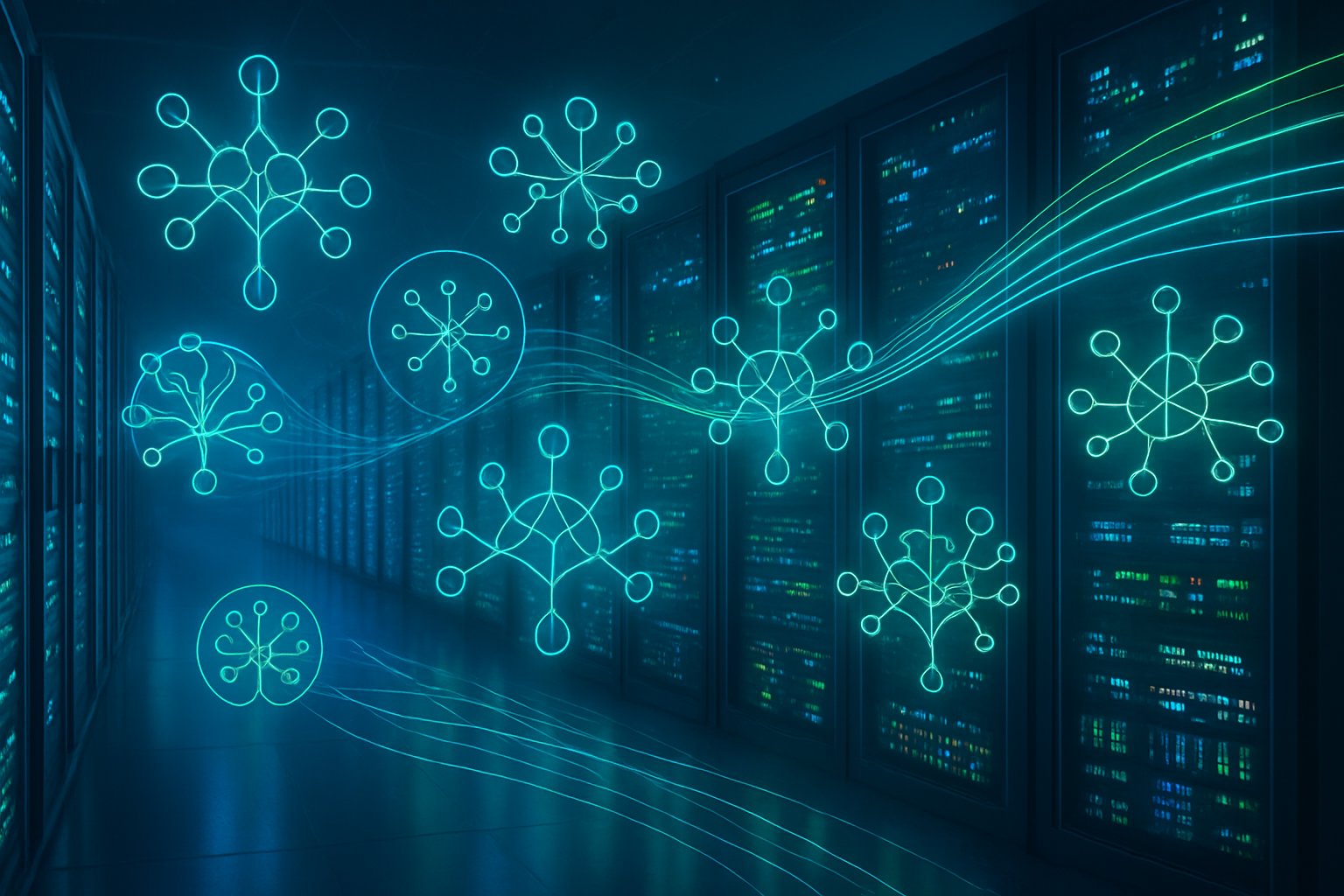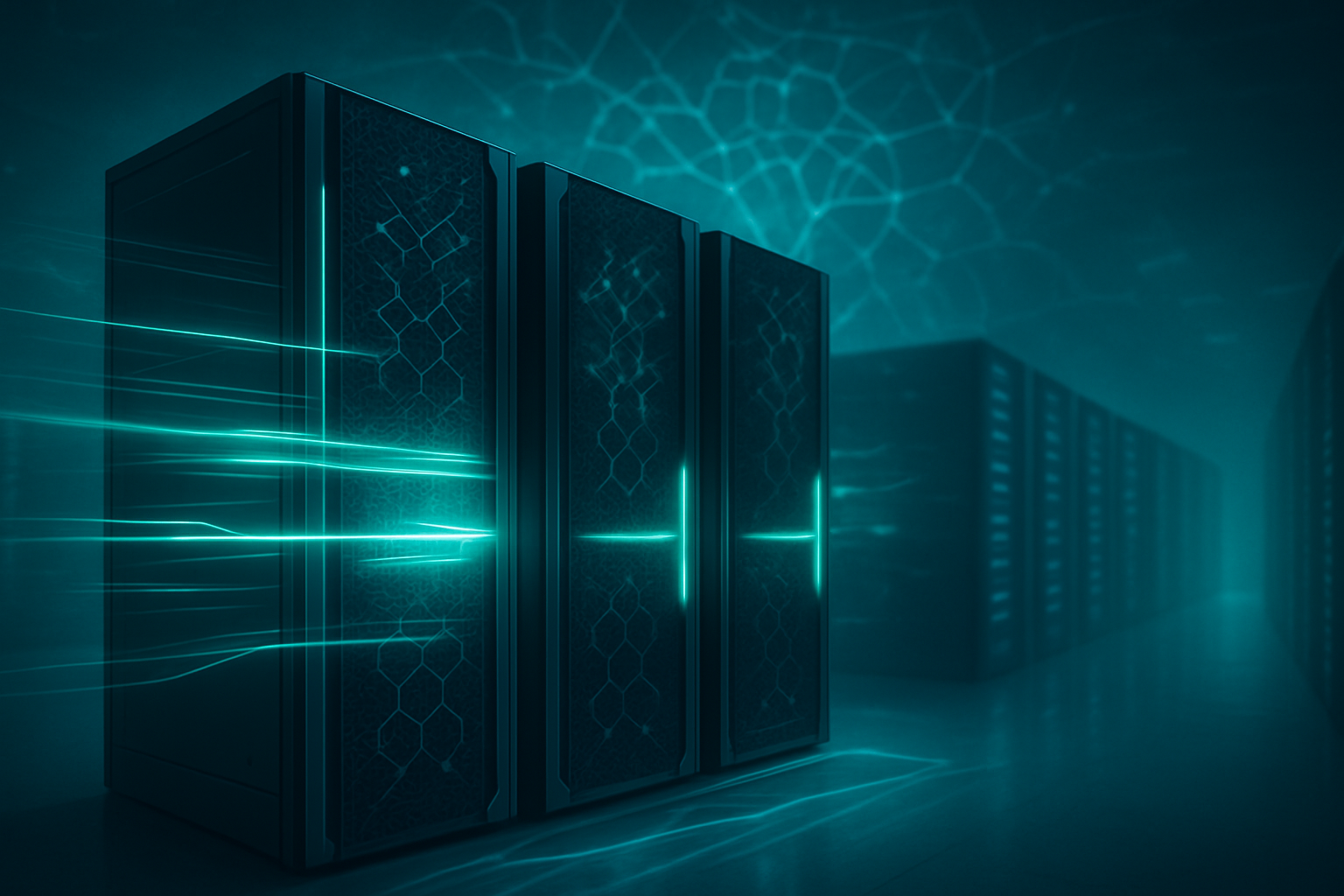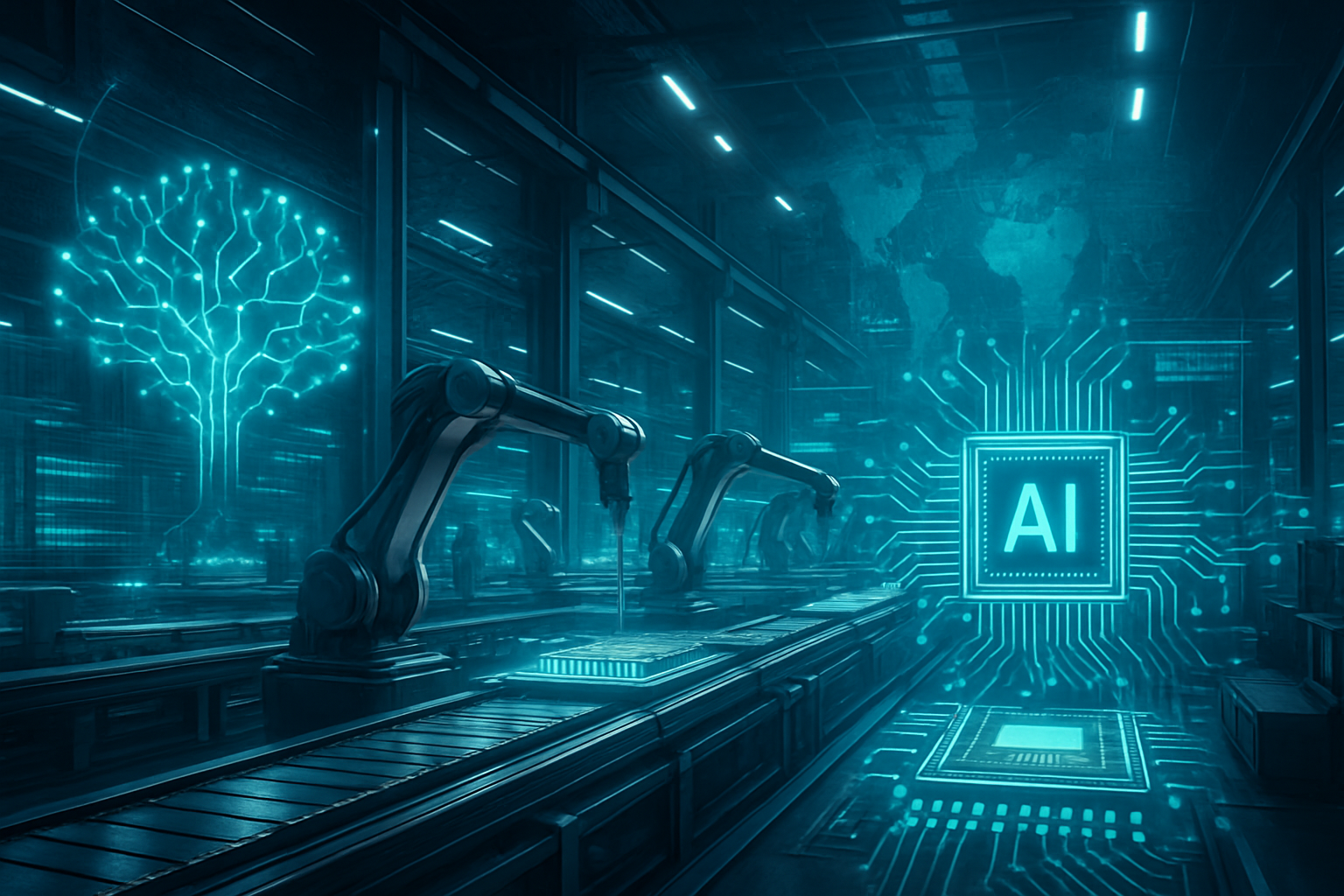The global Artificial Intelligence (AI) server market is in the midst of an unprecedented boom, experiencing a transformative growth phase that is fundamentally reshaping the technological landscape. Driven by the explosive adoption of generative AI and large language models (LLMs), coupled with massive capital expenditures from hyperscale cloud providers and enterprises, this specialized segment of the server industry is projected to expand dramatically in the coming years, becoming a cornerstone of the AI revolution.
This surge signifies more than just increased hardware sales; it represents a profound shift in how AI is developed, deployed, and consumed. As AI capabilities become more sophisticated and pervasive, the demand for underlying high-performance computing infrastructure has skyrocketed, creating immense opportunities and significant challenges across the tech ecosystem.
The Engine of Intelligence: Technical Advancements Driving AI Server Growth
The current AI server market is characterized by staggering expansion and profound technical evolution. In the first quarter of 2025 alone, the AI server segment reportedly grew by an astounding 134% year-on-year, reaching $95.2 billion, marking the highest quarterly growth in 25 years for the broader server market. Long-term forecasts are equally impressive, with projections indicating the global AI server market could surge to $1.56 trillion by 2034, growing from an estimated $167.2 billion in 2025 at a remarkable Compound Annual Growth Rate (CAGR) of 28.2%.
Modern AI servers are fundamentally different from their traditional counterparts, engineered specifically to handle complex, parallel computations. Key advancements include the heavy reliance on specialized processors such as Graphics Processing Units (GPUs) from companies like NVIDIA (NASDAQ: NVDA) and Advanced Micro Devices (NASDAQ: AMD), along with Tensor Processing Units (TPUs) from Google (NASDAQ: GOOGL) and Application-Specific Integrated Circuits (ASICs). These accelerators are purpose-built for AI operations, enabling faster training and inference of intricate models. For instance, NVIDIA's H100 PCIe card boasts a memory bandwidth exceeding 2,000 GBps, significantly accelerating complex problem-solving.
The high power density of these components generates substantial heat, necessitating a revolution in cooling technologies. While traditional air cooling still holds the largest market share (68.4% in 2024), its methods are evolving with optimized airflow and intelligent containment. Crucially, liquid cooling—including direct-to-chip and immersion cooling—is becoming increasingly vital. A single rack of modern AI accelerators can consume 30-50 kilowatts (kW), far exceeding the 5-15 kW of older servers, with some future AI GPUs projected to consume up to 15,360 watts. Liquid cooling offers greater performance, power efficiency, and allows for higher GPU density, with some NVIDIA GB200 clusters implemented with 85% liquid-cooled components.
This paradigm shift differs significantly from previous server approaches. Traditional servers are CPU-centric, optimized for serial processing of general-purpose tasks. AI servers, conversely, are GPU-accelerated, designed for massively parallel processing essential for machine learning and deep learning. They incorporate specialized hardware, often feature unified memory architectures for faster CPU-GPU data transfer, and demand significantly more robust power and cooling infrastructure. Initial reactions from the AI research community and industry experts have been overwhelmingly positive, viewing AI servers as an "indispensable ally" and "game-changer" for scaling complex models and driving innovation, while acknowledging challenges related to energy consumption, high costs, and the talent gap.
Corporate Juggernauts and Agile Startups: The Market's Shifting Sands
The explosive growth in the AI server market is profoundly impacting AI companies, tech giants, and startups, creating a dynamic competitive landscape. Several categories of companies stand to benefit immensely from this surge.
Hardware manufacturers, particularly chipmakers, are at the forefront. NVIDIA (NASDAQ: NVDA) remains the dominant force with its high-performance GPUs, which are indispensable for AI workloads. Advanced Micro Devices (NASDAQ: AMD) and Intel (NASDAQ: INTC) are also significant players with their AI-optimized processors and accelerators. The demand extends to memory manufacturers like Samsung, SK Hynix, and Micron (NASDAQ: MU), who are heavily investing in high-bandwidth memory (HBM). AI server manufacturers such as Dell Technologies (NYSE: DELL), Super Micro Computer (NASDAQ: SMCI), and Hewlett Packard Enterprise (NYSE: HPE) are experiencing explosive growth, providing AI-ready servers and comprehensive solutions.
Cloud Service Providers (CSPs), often referred to as hyperscalers, are making massive capital expenditures. Amazon Web Services (AWS), Microsoft Azure (NASDAQ: MSFT), Google Cloud (NASDAQ: GOOGL), Meta (NASDAQ: META), and Oracle (NYSE: ORCL) are investing tens of billions in Q1 2025 alone to expand data centers optimized for AI. These giants are not just consumers but increasingly developers of AI hardware, with Microsoft, Meta, AWS, and Google investing heavily in custom AI chips (ASICs) to optimize performance and reduce reliance on external suppliers. This vertical integration creates an "access inequality," favoring well-resourced companies over smaller AI labs and startups that struggle to acquire the necessary computational power.
The growth also brings potential disruption. Established Software-as-a-Service (SaaS) business models face challenges as AI-assisted development tools lower entry barriers, intensifying commoditization. The emergence of "agentic AI" systems, capable of handling complex workflows independently, could relegate existing platforms to mere data repositories. Traditional IT infrastructure is also being overhauled, as legacy systems often lack the computational resources and architectural flexibility for modern AI applications. Companies are strategically positioning themselves through continuous hardware innovation, offering end-to-end AI solutions, and providing flexible cloud and hybrid offerings. For AI labs and software companies, proprietary datasets and strong network effects are becoming critical differentiators.
A New Era: Wider Significance and Societal Implications
The surge in the AI server market is not merely a technological trend; it represents a pivotal development with far-reaching implications across the broader AI landscape, economy, society, and environment. This expansion reflects a decisive move towards more complex AI models, such as LLMs and generative AI, which demand unprecedented computational power. It underscores the increasing importance of AI infrastructure as the foundational layer for future AI breakthroughs, moving beyond algorithmic advancements to the industrialization and scaling of AI.
Economically, the market is a powerhouse, with the global AI infrastructure market projected to reach USD 609.42 billion by 2034. This growth is fueled by massive capital expenditures from hyperscale cloud providers and increasing enterprise adoption. However, the high upfront investment in AI servers and data centers can limit adoption for small and medium-sized enterprises (SMEs). Server manufacturers like Dell Technologies (NYSE: DELL), despite surging revenue, are forecasting declines in annual profit margins due to the increased costs associated with building these advanced AI servers.
Environmentally, the immense energy consumption of AI data centers is a pressing concern. The International Energy Agency (IEA) projects that global electricity demand from data centers could more than double by 2030, with AI being the most significant driver, potentially quadrupling electricity demand from AI-optimized data centers. Training a large AI model can produce carbon dioxide equivalent emissions comparable to many cross-country car trips. Data centers also consume vast amounts of water for cooling, a critical issue in regions facing water scarcity. This necessitates a strong focus on energy efficiency, renewable energy sources, and advanced cooling systems.
Societally, the widespread adoption of AI enabled by this infrastructure can lead to more accurate decision-making in healthcare and finance, but also raises concerns about economic displacement, particularly in fields where certain demographics are concentrated. Ethical considerations surrounding algorithmic biases, privacy, data governance, and accountability in automated decision-making are paramount. This "AI Supercycle" is distinct from previous milestones due to its intense focus on the industrialization and scaling of AI, the increasing complexity of models, and a decisive shift towards specialized hardware, elevating semiconductors to a strategic national asset.
The Road Ahead: Future Developments and Expert Outlook
The AI server market's transformative growth is expected to continue robustly in both the near and long term, necessitating significant advancements in hardware, infrastructure, and cooling technologies.
In the near term (2025-2028), GPU-based servers will maintain their dominance for AI training and generative AI applications, with continuous advancements from NVIDIA (NASDAQ: NVDA) and AMD (NASDAQ: AMD). However, specialized AI ASICs and FPGAs will see increased market penetration for specific workloads. Advanced cooling technologies, particularly liquid cooling, are projected to become standard in data centers by 2030 due to extreme heat loads. There will also be a growing emphasis on energy efficiency and sustainable data center designs, with hybrid cloud and edge AI gaining traction for real-time processing closer to data sources.
Long-term developments (2028 and beyond) will likely feature hyper-efficient, modular, and environmentally responsible AI infrastructure. New AI computing paradigms are expected to influence future chip architectures, alongside advanced interconnect technologies like PCIe 6.0 and NVLink 5.0 to meet scalability needs. The evolution to "agentic AI" and reasoning models will demand significantly more processing capacity, especially for inference. AI itself will increasingly be used to manage data centers, automating workload distribution and optimizing resource allocation.
Potential applications on the horizon are vast, spanning across industries. Generative AI and LLMs will remain primary drivers. In healthcare, AI servers will power predictive analytics and drug discovery. The automotive sector will see advancements in autonomous driving. Finance will leverage AI for fraud detection and risk management. Manufacturing will benefit from production optimization and predictive maintenance. Furthermore, multi-agent communication protocols (MCP) are anticipated to revolutionize how AI agents interact with tools and data, leading to new hosting paradigms and demanding real-time load balancing across different MCP servers.
Despite the promising outlook, significant challenges remain. The high initial costs of specialized hardware, ongoing supply chain disruptions, and the escalating power consumption and thermal management requirements are critical hurdles. The talent gap for skilled professionals to manage complex AI server infrastructures also needs addressing, alongside robust data security and privacy measures. Experts predict a sustained period of robust expansion, a continued shift towards specialized hardware, and significant investment from hyperscalers, with the market gradually shifting focus from primarily AI training to increasingly emphasize AI inference workloads.
A Defining Moment: The AI Server Market's Enduring Legacy
The unprecedented growth in the AI server market marks a defining moment in AI history. What began as a research endeavor now demands an industrial-scale infrastructure, transforming AI from a theoretical concept into a tangible, pervasive force. This "AI Supercycle" is fundamentally different from previous AI milestones, characterized by an intense focus on the industrialization and scaling of AI, driven by the increasing complexity of models and a decisive shift towards specialized hardware. The continuous doubling of AI infrastructure spending since 2019 underscores this profound shift in technological priorities globally.
The long-term impact will be a permanent transformation of the server market towards more specialized, energy-efficient, and high-density solutions, with advanced cooling becoming standard. This infrastructure will democratize AI, making powerful capabilities accessible to a wider array of businesses and fostering innovation across virtually all sectors. However, this progress is intertwined with critical challenges: high deployment costs, energy consumption concerns, data security complexities, and the ongoing need for a skilled workforce. Addressing these will be paramount for sustainable and equitable growth.
In the coming weeks and months, watch for continued massive capital expenditures from hyperscale cloud providers like Microsoft (NASDAQ: MSFT), Google (NASDAQ: GOOGL), and Amazon Web Services (AWS), as they expand their data centers and acquire AI-specific hardware. Keep an eye on advancements in AI chip architecture from NVIDIA (NASDAQ: NVDA), AMD (NASDAQ: AMD), and Intel (NASDAQ: INTC), as well as the emergence of specialized AI accelerators and the diversification of supply chains. The widespread adoption of liquid cooling solutions will accelerate, and the rise of specialized "neoclouds" alongside regional contenders will signify a diversifying market offering tailored AI solutions. The shift towards agentic AI models will intensify demand for optimized server infrastructure, making it a segment to watch closely. The AI server market is not just growing; it's evolving at a breathtaking pace, laying the very foundation for the intelligent future.
This content is intended for informational purposes only and represents analysis of current AI developments.
TokenRing AI delivers enterprise-grade solutions for multi-agent AI workflow orchestration, AI-powered development tools, and seamless remote collaboration platforms.
For more information, visit https://www.tokenring.ai/.


